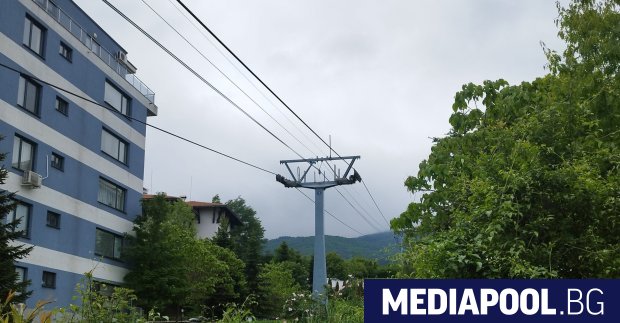#government #approved #controversial #law #dangerous #violates #peoples #rights #critics
We care that trustworthy information reaches everyone without discrimination, and that’s why you have access to this premium article for 6 hours for FREE. Be part of our community you too and help us provide important information for everyone.
Law on strategic investments, which was approved by the National Council on Wednesday, will make it possible to shorten the preparatory processes of large projects by up to half. This was stated by the Minister of Transport Jozef Ráž, according to which the new legislation will mainly affect building permits, environmental impact assessment and property settlement.
While the coalition points to the many benefits it will bring, the opposition and non-governmental organizations warn of its consequences. According to them, the law disproportionately interferes with property rights, gives immunity to friends of the coalition who will implement state contracts, is undemocratic and unconstitutional.
In cooperation with experts, Aktuality.sk has prepared an overview and answers to the most common questions regarding the controversial legislation.
What is the Law on Strategic Investments?
Z explanatory report it follows that the Ministry of Transport submitted a draft law on extraordinary measures for strategic investments and for the construction of the trans-European transport network (TEN-T) in connection with Slovakia’s obligation to transpose the European directive on efficiency measures to achieve progress in the implementation of the TEN-T.
According to the department, individual strategically important projects aimed at investments in various areas, such as transport, economy, healthcare, energy, defense or security, are not carried out in the time intervals that are desirable and necessary for the proper fulfillment of the tasks of the Slovak Republic. “One of the reasons is that permitting processes and public procurement are disproportionately time-consuming,” the explanatory report reads.
According to the ministry, the failure to build the necessary infrastructure weakens the interest of investors to invest in Slovakia, which does not benefit Slovakia’s economy and ultimately slows down the overall well-being of Slovakia’s population.
What is the goal of the new law?
According to the department, the bill should be a measure that should make it easier for investors to make investments that are strategically important for Slovakia.
The Ministry of Transport states in the explanatory report that one of the basic goals of the law is to make passable and efficient:
- Property settlement of land and buildings for the preparation of the construction of strategic projects that are important from the point of view of transport, economy, healthcare, energy, defense and security of the Slovak Republic,
- permitting processes necessary for the approval of strategically important projects,
- public procurement of strategically important projects.
Who can be considered an investor?
It follows from the draft law that investors can only be:
- The Slovak Republic represented by a state body,
- higher territorial unit or municipality,
- a legal entity with 100% ownership by the state, higher territorial unit or municipality,
- a legal entity established by law or a state authority,
- an association of legal entities whose members are only legal entities according to the first to third points.
What is a strategic investment?
It follows from the draft law that the government will decide whether the investment is strategic. It can also designate an investment project as a strategic investment, if:
- its implementation is in the public interest,
- will be implemented in the territory of the investment of the necessary scale,
- its location is in accordance with the spatial plan and strategic documents of the state, municipalities or higher territorial units in which the project is to be implemented,
- observes environmental protection measures.
When does the law come into effect?
Deputies presented the bill on January 10, 2024 and discussed it in a shortened legislative procedure. It was approved on Wednesday, April 24. The legal norm will be effective on the day of its announcement.
Who criticizes the law and why?
Almost immediately after the presentation of the draft law, opposition MPs, non-governmental organizations and experts began to comment on it. They drew attention to several questionable points that, according to them, the coalition should have removed from the law before its approval.
Violation of proprietary rights
Opposition MP Veronika Remišová (Slovakia, For People, Christian Union) she pointed out, that the government is going to grossly violate the property rights of people in Slovakia through the law. According to her, the law introduces several very dangerous procedures in permitting construction or land expropriation.
He claims that the government can decide on a strategic investment on the basis of this law, and the holder of this authority gets several benefits at the expense of people’s rights. Ivana Figuli, a lawyer from the civic association VIA IURIS, agrees with her. “Once the government decides that some investment will be upgraded to strategic, it will have an unlimited validity and will affect the property rights of ordinary people in the affected area for an unlimited period of time,” he warns.
Remišová pointed out that the investor or builder will be able to enter foreign land for the purpose of preparatory work or to carry out necessary measures for construction purposes.
Encroachment on the rights of municipalities
Non-governmental organizations VIA IURIS, WWF Slovakia, Združenie Slatinka and others published in January of this year collective reminderin which they claim that the method of determining and deciding what a strategic investment is is absolutely arbitrary and opens up space for the implementation of practically any investment, even one that is in conflict with the territorial plan of municipalities, with the obligations of Slovakia, public interests in other areas of public life, as well as with strategic documents at the national, regional or local level.
“Thanks to this proposal, the government can overrule local governments, as it can enforce construction on the territory of a municipality or a higher territorial unit, contrary to their spatial plan,” Ivana Figuli explained.
Aktuality.sk approached the Association of Cities and Towns of Slovakia (ZMOS) and the Union of Cities of Slovakia (ÚMS), which we asked for their opinion on the new legislation. ZMOS has not yet commented on the questions, the ÚMS has indicated that it is currently preparing an analysis of the impact of the approved law on self-government.
Questionable compliance with the Constitution
The former state secretary of the environment department, Michal Kiča, drew attention to the possible unconstitutionality of the law from the workshop of the Ministry of Transport back in January. “The investor will be able to immediately enter the land, obtain the right of pre-emption, expropriate and subsequently evict people in their homes without a court decision. And even the most vulnerable ones. Everything by express only with the right to table compensation. Many of the proposed measures have already been declared unconstitutional by the Constitutional Court. However, this obviously does not hinder the government,” he said.
The non-governmental organizations around VIA IURIS, on the other hand, pointed out in the above-mentioned collective comment that the draft law in a significantly negative and unacceptable way limits the rights of local governments to decide on their territory and to ensure care for the all-round development of their territory, which is in violation of the laws as well as in violation of the constitutional definition self-government.
The possible unconstitutionality of the law was also pointed out by Veronika Remišová, who announced a few days ago that she would contact the other opposition parties with the aim of turning to the Constitutional Court and examining the law’s compliance with the Constitution. “We believe this law is unconstitutional and we will do everything we can to protect people’s property rights from this government coalition bulldozer,” she said.
On the margin of reservations that the law rudely interferes with the property rights of citizens, the Minister of Transport Ráž stated, that the department tried as much as possible to preserve the rights of citizens when creating the law. However, he pointed out that the institution of expropriation has existed in Slovakia for a long time and, compared to other countries of the European Union, it is very soft towards the citizen.
At the same time, he added that he does not consider the law to be unconstitutional, since, according to him, every entrance to the land will be realized for compensation. “This is not a unilateral act, but presupposes an agreement. It gives the state an instrument on how it will negotiate with the citizen, how it will enter his land,” Ráž said.
Project stack
New Act on Strategic Investments criticizes even the strongest opposition party Progressive Slovakia. Deputy Ivan Štefunko warns that he will expand the range of investments that the state can designate as strategic.
“The strategic investment is no longer supposed to be over 100 million euros, but it has dropped to 50 million euros. It no longer has to be 100 percent owned by the state, but only 50 percent,” Štefunko listed the main changes proposed by the coalition deputies in the parliamentary committee for the economy.
According to Štefunk, the portfolio of strategic investment projects will increase fourfold. “When everything is a priority, nothing will be a priority,” added the MP.
Disclaimer
Member of the opposition SaS and former Minister of Justice Mária Kolíková a few days ago she expressedthat (at that time) the bill reminded her of the immunity for coalition friends who will implement state contracts.
“The government’s proposal removes any responsibility of the statutory investor who implements the state contract. In practice, this legal regulation would mean that the state would always bear full responsibility for the investor’s misconduct,” Kolíková declared a week ago.
According to her, the government coalition has created space for itself with this legislation so that it is not possible to derive responsibility for low-quality and overpriced projects. “If there is a mistake, the state will always pay for the damage. If this amendment were written by lawyers of investors who want to avoid responsibility, it would not look different,” the opposition member of parliament evaluated.
Taylor Wessing lawyer Martin Kuchta also considers the exclusion of liability to be “relatively non-standard”.
However, the Minister of Transport Jozef Ráž rejected the claims of abdication of responsibility. “No one is exempt from criminal or civil liability in connection with corruption or any damage committed. It is exclusively an administrative-legal responsibility linked to the government’s decision that it is a strategic investment and the determination of its public nature,” he explained.
Weakening of the independence of the ÚVO
Deputy of Progressive Slovakia Ján Hargaš pointing out to the fact that the law also proposes a change to the Public Procurement Office (ÚVO). According to him, it is an office that decides in disputes between entrepreneurs regarding large contracts, and therefore it is important that it be independent, including from the government. However, according to the proposal, it should have a new vice-chairman for strategic investments, who will be appointed by the government on the proposal of the head of the government office.
According to lawyer Kuchta, the method of electing the vice-chairman of the ÚVO for the strategic agenda, who is to be elected by the government, may also raise questions. “Such a method of appointment can be perceived as potentially threatening the independence of the ÚVO, or the newly created supervisory body for the strategic agenda, the need for which is in itself questionable,” assesses Kuchta.
According to him, in the case of orders “from the strategic agenda”, there are only minimal differences from the point of view of the procedural requirements of the public procurement procedure. “Therefore, we do not consider it highly likely that the establishment of this department will fulfill the purpose declared by the submitter, namely to strengthen the professionalization of the procurement supervision process,” adds the lawyer.
Thank you for coming to us for relevant information. This is also why you can read our premium content for FREE for 6 hours. Read it anytime for only €19.99 for the whole year and now you can also get a new book Peter Bárdy Zuzana Čaputová – Courage to humanity in advance sale with 25% discount and a limited offer of 1000 pieces with the author’s signature!
access to exclusive content
you will support free journalism
Aktuality.sk Živé.sk Najmama.sk
Get a subscription









